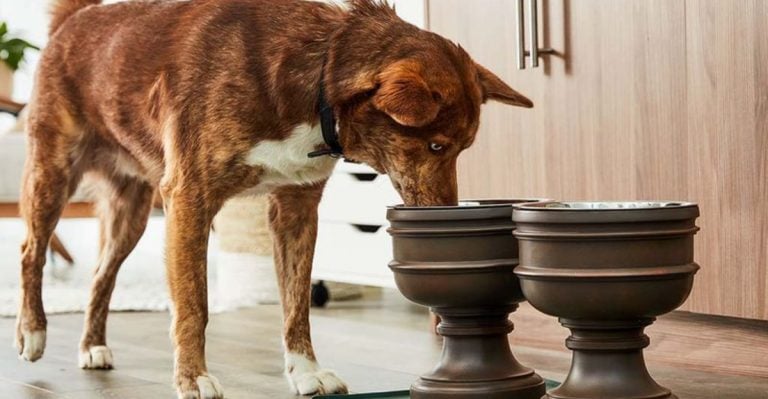The Most Frequent Health Concerns In Older Dogs

Did you know over 50% of senior dogs suffer from arthritis? Dog owners must spot common health problems in older dogs early because that can make a big difference in their well-being. In this article, we’ll review the 15 most frequent health issues aging dogs face.
Arthritis And Joint Pain

Joint pain is common in older dogs, with up to 20% of those over 7 years old affected by arthritis. As your dog ages, their joint cartilage starts breaking down. So, maintaining a regular exercise routine with low-impact activities, like short walks or swimming, can help keep those joints moving and reduce pain.
Dental Disease And Oral Health

By the time dogs reach age 3, more than 80% already have some form of dental disease. Bad breath, difficulty eating, and irritability can indicate that your dog’s teeth need attention. Brushing their teeth daily and scheduling regular vet cleanings is essential for avoiding painful dental problems.
Cataracts And Vision Problems

Has your dog been bumping into furniture or appearing disoriented? It could indicate vision loss, a common issue in older dogs. Nearly 80% of senior dogs suffer from cataracts, which cloud the eye’s lens and cause blurry vision. Keep an eye out for other vision problems, like glaucoma or retinal degeneration.
Gastrointestinal Issues

Senior dogs may experience more frequent stomach problems, such as constipation and diarrhea. These issues are often tied to changes in diet, stress, or maybe even digestive slowdowns. If your dog’s digestion seems off, a vet visit is due for treatment.
Hearing Loss

Your dog’s hearing may start to fade as they age. This is a natural part of the aging process but can also be caused by recurring ear infections. If you notice that your dog no longer responds to their name or seems indifferent to loud sounds, hearing loss might be the culprit.
Heart Disease And Heartworms

Many senior dogs, especially small breeds, suffer from mitral valve disease. It affects the heart’s ability to pump blood properly. Heartworms can also damage the heart and lungs. Ensuring your dog is on preventive heartworm medication is key to avoiding long-term heart problems.
Obesity And Weight Management

Obesity is becoming a growing concern for older dogs, with more than 50% of U.S. dogs classified as overweight. As dogs age, they grow down, making weight management more difficult. Monitor your diet and keep it active to avoid health risks associated with excess weight, such as joint pain and heart disease.
Kidney Disease And Renal Failure

Aging kidneys can become less efficient, leading to a buildup of toxins in the bloodstream. Up to 10% of senior dogs over 7 years old are affected by kidney disease, which can cause symptoms like nausea and loss of appetite, among others. If diagnosed early, your dog can live healthier with the proper care and diet adjustments.
Cancer

Cancer is one of the leading causes of death in older dogs, with one in four dogs being diagnosed in their lifetime. Early detection makes a huge difference in survival rates. Regular vet check-ups and monitoring changes in behavior can help catch signs of cancer before it progresses too far.
Diabetes

More senior dogs are being diagnosed with diabetes, especially those who are overweight. Diabetes happens when your dog’s body can’t produce enough insulin, leading to increased thirst and unexplained weight loss. If your dog shows these signs, a blood test can confirm the diagnosis.
Hypothyroidism And Hormonal Imbalance

Hypothyroidism in aging dogs occurs when the thyroid gland fails to produce enough hormones. This inevitably leads to weight gain, lethargy, hair loss, and skin issues. Fortunately, hypothyroidism is easily managed with daily medication, which helps regulate hormone levels and restore your dog’s energy and overall well-being.
Skin Problems And Hair Loss

Dry, flaky skin or hair loss is often seen in senior dogs due to decreased oil production. Allergies or even parasites may also play a role in skin problems. Grooming and regular vet visits can help keep your dog’s coat healthy and comfortable.
Urinary Incontinence

Many older dogs, especially spayed females, experience urinary incontinence. If your dog starts having accidents around the house, it could be due to weakened bladder muscles or hormonal changes. Medication often helps manage the condition, ensuring your dog can maintain a routine.
Liver Disease

Liver disease is another common issue in older dogs. Infections, toxins, or metabolic conditions often cause internal imbalances. A blood test is the first step in diagnosing liver disease, and the earlier it’s caught, the better the prognosis.
Senility And Cognitive Dysfunction

If you notice your dog wandering or forgetting commands, consult your vet to determine if cognitive dysfunction is at play. Like humans, older dogs suffer from cognitive dysfunction or “doggy dementia,” which can lead to confusion, disorientation, and other changes in behavior.






